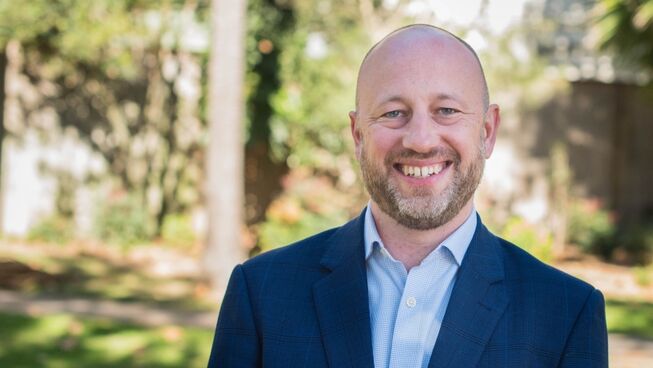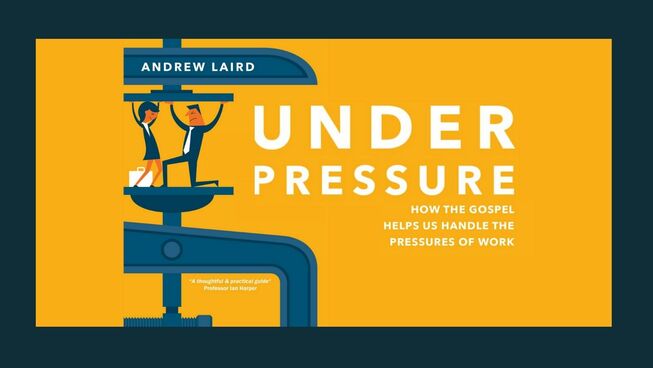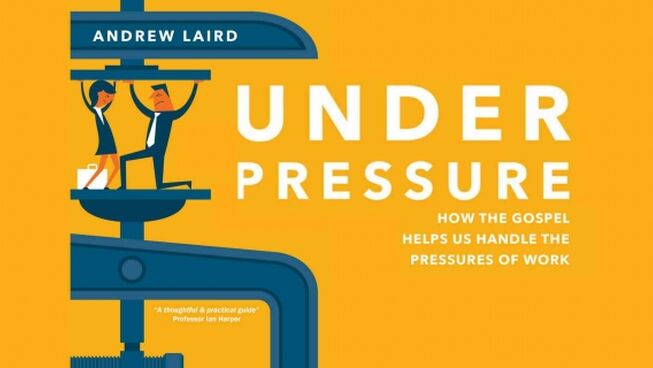Dealing with the 'hardest part of work': colleagues

“To be happier, more successful, and more stress-free at work, you only have to do two things well. You have to get the job done, and you have to handle the relationships with the people around you. Getting the job done tends to be the easy part”.
I wonder if the above rings true for you? It certainly does for me. And I hasten to add, many of my colleagues would likely say the same thing about working with me! Indeed, of the many people I speak with about their daily work, it is more commonly their workmates than the work itself that they express frustration with.
But this shouldn’t really surprise us, should it? Even those who might work exclusively with other Christians still work with people who sin. And when two sinful people work together, it’s inevitable that we’ll rub one another up the wrong way.
That’s perhaps the starting point to building great working relationships with our colleagues— recognising that challenges and frustrations with colleagues will always be a feature of work this side of eternity.
But that doesn’t mean we should simply resign ourselves to this fact and just “suck it up”. The world will encourage us to respond by moving away, and that does make sense, but it’s not what God would want us to do.
Self-protection by moving away, or moving towards and attacking isn’t the answer
Perhaps one of the most common ways many respond to difficult colleagues is to simply move away. Numerous surveys reveal that one of the key reasons why people change jobs is because they can’t stand the people they work with, especially their boss!
But while we might not physically move away from those colleagues (or bosses) we don’t like, we can mentally and emotionally move away from them—avoiding interactions with them, delaying our response to their emails or questions.
On the flip side, some of us might move toward difficult colleagues and fight back. We demand our rights, we get defensive, we seek to get even. As one online self-help article puts it, “Don’t get mad — get even. Lay future fantasy plans about ways to get even with your colleagues. With every snide remark you can add another imagined revenge”.
Now these two movements might appear to be opposites (move away, move towards). However, they have more in common than you might initially think. Both are motivated by selfishness and self-protection—doing what is best and easiest for me. But neither result in great working relationships. Indeed, they only inflame and worsen relationships!
Instead, there are two other selfless moves we can make (which may probably be harder) but will likely have a more positive impact.
1. Move towards love
Jesus instructs us in two other movements we should make, both motivated by selfless concern for the other, putting their interests above our own comfort.
Firstly, Jesus says we are to move towards everyone with love, including even our enemies! Some consider Jesus’ instruction in Luke 6 to be His most radical teaching. Instead of self-protection, Jesus gently instructs us to place the interests of others before our own. He tells us to lean in with love—to make ourselves vulnerable by leaning in with our cheek towards the other.
New York pastor Timothy Keller sums Jesus’ instruction up well, writing, “When Jesus talks about turning the other cheek or not paying back, He means not just refraining from paying back, but hoping for a relationship ... Jesus’ whole point about turning the other cheek is to say, ‘Don’t you dare just refrain from vengeance externally. I don’t just ask for that. I say to you that when you look at the person who has wronged you, no matter how messed up and how vicious they’ve been, you need to treat them with hope, you need to treat them with forgiveness”.
Practically what does that mean with our work colleagues? It might mean replacing words designed to hurt, with words designed to heal. It might mean rather than avoiding your least liked colleague, you’ll make a beeline directly for them each day, either in person, or online. Start the day with a smile and a question about their day ahead. Or it might mean returning to the person who failed to give you credit for your work and asking what else you might do. Sacrificial, costly love (even for those who don’t show any love in return) is to be our guide.
2. Move towards prayer
Secondly, in the same passage in Luke, Jesus instructs us to move towards our enemies with prayer: “Pray for those who ill-treat you” (6:28). I can personally testify to the difference it has made on so many occasions when I have begun my workday by praying for those colleagues who annoy me. I continue to be surprised (although I know I shouldn’t be) by the impact that bringing a person before God in prayer has on my feelings towards the person I dislike. I can’t help but feel more positively towards them as I take the time to do something as extraordinary and loving as praying for them.
But of course, my prayer does more than simply change me. As God answers our prayers for them and our relationship with them, so often the relationship itself begins to change.
To love those colleagues we find difficult in ways that are selfless and sacrificial will not go unnoticed. And in not going unnoticed, they become a powerful witness to the One who has loved us most extravagantly like this. The One who lent in, literally entered in, to His very creation, and loved us to the point of death. The One who on the cross laid down His life for His enemies, and who prayed for them in that moment (Luke 22:34). As we love even in small ways like this, what a witness it is to our colleagues of the greatest love humanity has ever witnessed!
Originally published on YMI at ymi.today/2021/09/2-moves-towards-building-a-better-relationship-with-your-workmates. Republished with permission.
To read more on this topic see Chapter 3 of Under Pressure: How the Gospel helps us hand the pressures of work by Andrew Laird







